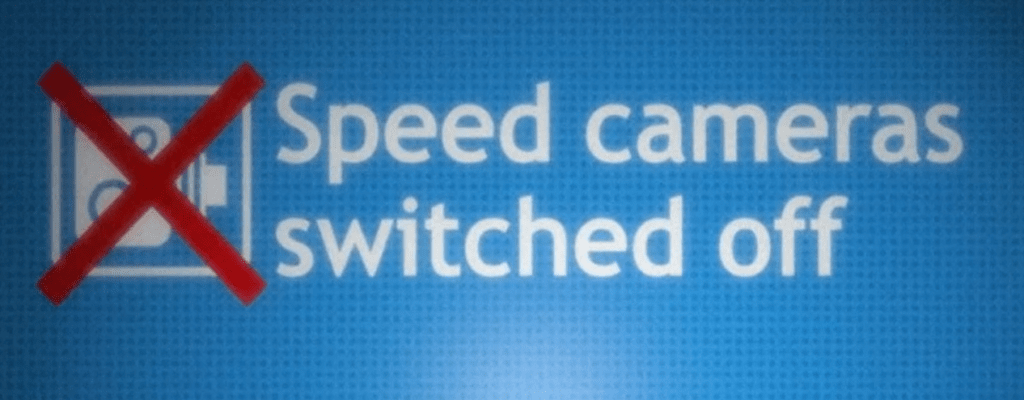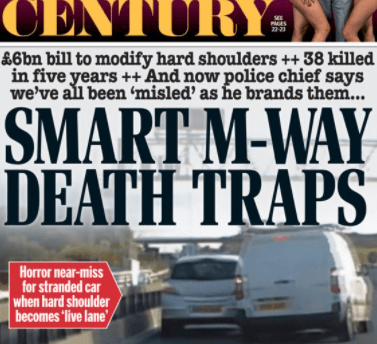By Mark Langabeer
This week’s BBC Panorama programme investigated why there is an increase in serious road accident figures, after years when the trend has been downwards. The programme’s reporter, Richard Bilton, examined some of the reasons for the rise in deaths on our public roads.
Over the past forty years, road traffic deaths have fallen. However, in 2020, the number of deaths and serious injuries increased with 1,600 deaths and 25,000 serious injuries. Bilton identified some of the causes for the rise in death rates.
For a start, the number of traffic police officers has fallen by 15% since 2016. For many of those who remain, policing traffic is no longer their only responsibility. In all, expenditure on policing our roads has fallen by a third in the past six years. Matt Parr, the government-appointed HM Inspector of Constabulary, said that the Police’s top brass have lowered the priority for policing traffic and road safety and it was his opinion that there was a clear link between the rise in road deaths and the fall in dedicated traffic police numbers.
Speed cameras switched off
Bilton makes the point that one of the main causes of death on the roads is vehicles speeding, but he noted that over 500 fixed speed cameras are not operational. According to him, there is even one county with no working speed cameras. The responsibility for maintaining speed cameras lies with local government, but due to cuts in budgets, councils are not replacing or introducing new ones and they are clearly not maintaining the ones they already have. Drink-driving is also still a major cause of deaths. However, the annual random testing of motorists has fallen from over 800,000 in 2009, to just over 300,000.

One of the issues the programme focuses on is the introduction of so-called ‘smart’ lanes on some of Britain’s motorways. These involve the use of the hard shoulder as a regular traffic lane, to increase the overall flow of traffic at peak times and therefore relieve congestion. But these lanes have been associated with a number of serious accidents and fatalities, because a broken-down vehicle has nowhere to go and accidents have arisen almost invariably from the blockage caused by such a vehicle in often fast-moving traffic. It has only been as a result of the outcry – and some newspaper campaigns on the issue – that the Tories have at last been forced to pause in the roll out of smart lanes.
Panorma’s Richard Bilton also makes the point that rural roads often very dangerous especially where they lack paths for pedestrians. He drives, for example, on the A82, regarded as Scotland’s most dangerous road, because 47 deaths have been recorded on it in the last five years. It is easy to see how pedestrians and stationary vehicles can cause serious accidents on this road.
One of the problems is that much of Britain’s road network is ancient, and not really suited to modern forms of transportation. The President of the Automobile Association, Edmund King, even argues that the rise in deaths are not accidents, because they were preventable.
Tory austerity measures over the last twelve years
We have to be clear that the principal cause of the recent rise in road deaths is Tory austerity measures that have been aimed at local authorities and at one element of police work that few workers would argue with: the management of traffic and road safety.

One useful measure that Labour could and should introduce is a cheap fares policy on our trains and buses. In a green drive to promote public transport and less car use workers should not be simply priced out of getting to work. Public transport should be able to attract more passengers by being made cheap, easily available (in rural areas where there is serious absence) and reliable.
Over 40 years ago, the Labour-led Greater London Council introduced a cheap fares policy and increased services on London’s bus network. It resulted in a rise in passenger numbers and a reduction in car usage. A roll out of such a scheme on a national level could reduce accidents, pollution and CO2 emissions. But that would require the public ownership of both train and bus operations, so their timetables and services could be properly integrated and investment undertaken. It would require a subsidy from taxes, in the short term, but in the longer term, it would save money.
I am disabled and granted a mobility car. Owing to the lockdowns, there have been fewer insurance claims and the mobility insurers have given money back to disability car holders. It’s an illustration of what could be achieved if Labour introduced a cheap fares policy throughout the UK.
The programme (from which all pictures are taken) can be seen on BBC i-player here.



